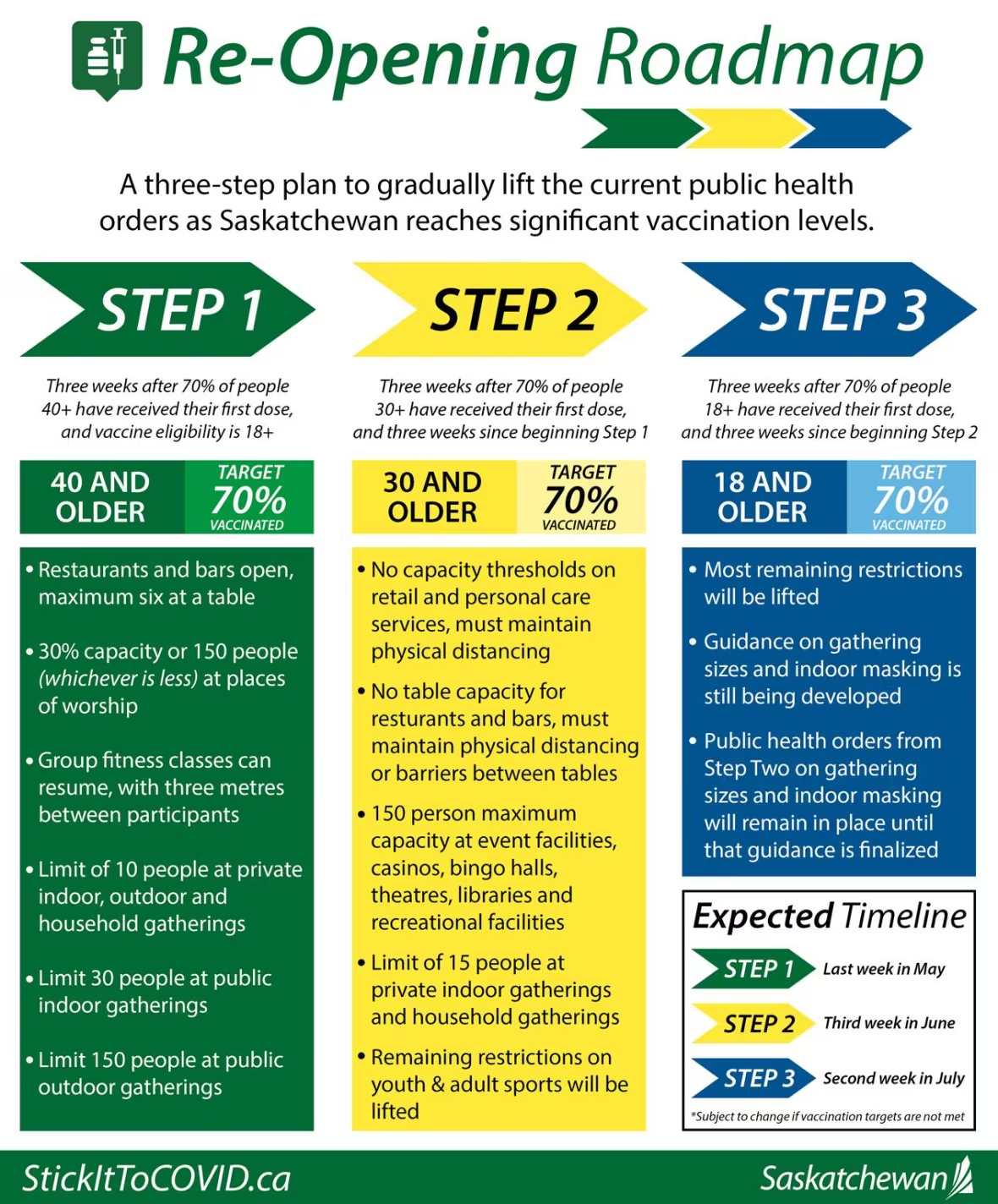Quebec's roadmap to reopening is coming. How we got here and what to expect
With summer approaching, Premier François Legault is expected to lift restrictions

Premier François Legault is, at long last, set to announce a roadmap to reopen the province. Details will be announced later today, at a 5 p.m. news conference.
Legault has already provided hints of what's to come.
"We have a complete plan. That means, what will happen in homes, what will happen at the Bell Centre, and what will happen in our lives in general," he said Monday.
"It should be a plan more beneficial for this upcoming summer compared to last summer because vaccinations are going well and we didn't have that last summer."
According to Radio-Canada, the curfew could be lifted on May 28. Same for the reopening of terrasses for restaurants.
Still, Legault has stressed repeatedly, any loosening of restrictions will be gradual and will depend on the epidemiological situation.
Experts say there will need to be other considerations, including striking the right balance as the toll on the public grows more than a year into the pandemic.
Here's a look at how we got here and what to expect.
1) Things are going in the right direction
The daily case count, the number of hospitalizations and the number of deaths are all on the decline. The case The province's Rt rate, which tracks the number of other people a single infected person is likely to infect, is also below one.
The vaccination rate, meanwhile, is rising quickly. More than 50 per cent of the adult population has received a dose of vaccine and more than 75 per cent of the population have received one or have an appointment scheduled.
Only about 250,000 Quebecers, however, have been fully vaccinated — and only four per cent of those 60 and over, who are most vulnerable to the virus, have had both shots.
Dr. Theresa Tam, Canada's chief public health officer, said recently that restrictions can begin to be loosened once 75 per cent of the population has received one dose and 20 per cent has received two.
2) Restrictions won't be lifted all at once
Legault has repeatedly said the province will need to lift measures slowly. Much of the population, including Montreal, remains in a so-called red zone — the highest level of restrictions — so there is much to be undone.
Although terrasses are expected to reopen soon, restaurant dining rooms aren't.
Experts have said reopening indoor dining areas or bars wouldn't be advisable until a greater number of people are vaccinated. Restaurants want clarity.
"The major difficulty is to be able to have enough staff for the relaunch, and now CEGEP students and university students are finishing their semesters so they are actively searching for a summer job," said Martin Vézina of Quebec's restaurant association.
Gatherings on private property still aren't allowed and that could be one of the first things to change.
Prof. Benoit Barbeau, a virologist at Université du Québec à Montréal, said loosening restrictions in the near future makes sense.
"Because of what we know about transmission ... everything which is outdoor can definitely be taking place more easily without that much restriction as long as we keep the number of infected cases low and continuously see progressive declines in terms of numbers, and as long as the vaccine rollout continues to work well," he said.
3) Look to Saskatchewan, and beyond
Saskatchewan was among the first provinces to announce a detailed reopening plan earlier this month and Legault said recently he was considering something similar.
Experts say a plan like Saskatchewan's gives people an added incentive to get vaccinated. (Stage 1 of the province's plan includes allowing gatherings of up to 10 people indoors once 70 per cent of those 40 and over are vaccinated.)
On Tuesday morning, Legault used that same approach. He said 75 per cent of adults in the province had either received a first dose of a COVID-19 vaccine or booked an appointment, and as a result, Quebecers would soon regain a sense of normalcy.
"We are finally approaching freedom," he said. "Thank you for making a difference."
Dr. Karl Weiss, who heads the infectious diseases department at Montreal's Jewish General Hospital, told Radio-Canada "there are no magic rules" that can be applied across different jurisdictions.
But he said it's clear that once more of the older population has been vaccinated, restrictions can be lifted without the health-care system being put at risk.

4) Striking a balance
Dr. Horacio Arruda, Quebec's public health director, has said the reopening plan will give people hope and more freedom, but that they will have to remain prudent. That may be a difficult balance to strike.
Over the weekend, many of Montreal's parks were packed with people eager to see each other and enjoy the sun.
Shirlette Wint, a psychotherapist and social worker based in Montreal, said this next stage will be a challenge for the public and the government, given that "people have a way of reading and interpreting the sanitary measures" in the way they see fit.
"I think there's optimism, and at the same time, there's some anxiety," she said.
Maude Laberge, a professor at Université Laval and a researcher in population health, added that clear guidelines will help.
"I hope the plan will be really transparent and give hope to the population and that people will adhere to the measures, and realize that while we're opening we can't do everything at once so we have to take a step-by-step approach."
WATCH | What we know about the virus and the outdoors
With files from Lauren McCallum, Matt D'Amours and CBC Montreal's Daybreak
